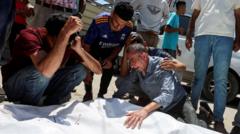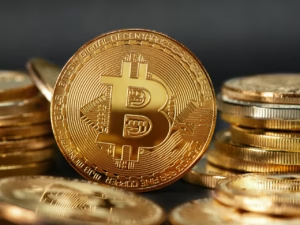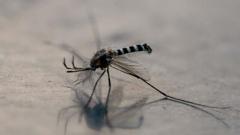The World Health Organization has finalized a historic agreement to regulate global responses to future pandemics.
WHO Unveils Groundbreaking Legally Binding Pandemic Treaty

WHO Unveils Groundbreaking Legally Binding Pandemic Treaty
New treaty aims to enhance global pandemic response through coordinated resource sharing and data management.
Members of the World Health Organization (WHO) have achieved a significant milestone by agreeing on a legally binding treaty aimed at strengthening global responses to future pandemics. The agreement seeks to address the chaos and competition for resources that characterized the COVID-19 pandemic.
Key provisions of the treaty include ensuring rapid sharing of data regarding emerging diseases, which will enable scientists and pharmaceutical companies to expedite the development of treatments and vaccines. For the first time, the WHO will have oversight of global supply chains for critical items such as masks and personal protective equipment (PPE).
WHO Director-General Dr. Tedros Adhanom Ghebreyesus called the agreement a "significant milestone in our shared journey towards a safer world," emphasizing the importance of multilateral cooperation in tackling global health threats.
This legally binding pact, reached after three years of negotiations, marks only the second such agreement in WHO's 75-year history, following a tobacco control agreement in 2003. While the treaty has been agreed upon, it awaits formal adoption by member states at the upcoming World Health Assembly next month.
Notably, U.S. negotiators were absent from the final discussions after former President Donald Trump announced the U.S. withdrawal from the WHO, which will become effective in 2026. The treaty mandates that countries ensure global availability of pandemic-related drugs during future outbreaks, with participating manufacturers required to allocate a minimum of 20% of their vaccine, therapeutic, and diagnostic production to the WHO. Furthermore, at least 10% of these supplies must be donated, while the remainder is to be offered at affordable prices.
In addition, participating countries approved the transfer of health technologies to lower-income nations, facilitating local production of vaccines and medicines during pandemics. This provision has been controversial, especially given the frustration developing countries expressed over wealthy nations' practices in hoarding vaccines during the COVID-19 crisis.
At the heart of the treaty lies a proposed Pathogen Access and Benefit-Sharing System (PABS), aimed at enabling quicker data exchange between pharmaceutical companies, thereby streamlining the response to future pandemics and expediting the development of new drugs.






















